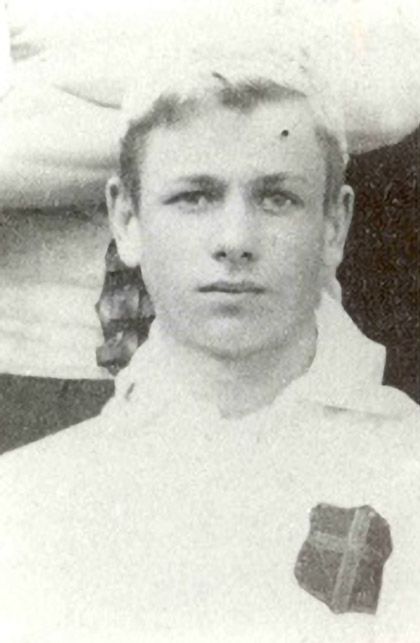John Gurner Burnell
TKS 1897 - 1903
ENGINEER and DISTINGUISHED SOLDIER

“After the capture of enemy trenches he, on his own initiative and by himself, carried out a risky reconnaissance which led to the occupation of further trenches,” reads the citation for the Military Cross of John Gurner Burnell a King’s man who distinguished himself both at school and during World War I.
John Gurner Burnell was Captain of Day Boy House in 1902.Throughout his school career he achieved various academic awards and in 1902 received a Rugby Honours cap. His academic achievement was rewarded with a scholarship to study engineering at Sydney University where he graduated with First Class Honours.
With the outbreak of World War 1 John enlisted in the AIF 5th Field Company (Engineers). John saw action on the Western Front. It was during the attack on Pozieres that he was awarded the Military Cross for his daring reconnaissance raid.
He saw further action at Bullecourt and Passchendale before taking part in the 1918 offensive. In 1919 his courage was again recognised with John receiving the Croix de Guerre. By the end of the war John was Staff Officer to the Chief Engineer of the AIF in France.
After his repatriation, John went on to distinguish himself in his chosen field of engineering. In 1928 he commenced work on standardising general pumps. As General Manager of Thompson’s Engineering and Pipe Co he was responsible for the day to day running of the Castlemaine (Victoria) business and he played a major part in building the company into Australia’s leading manufacturer of high efficiency pumps.
A respected member of the Engineering fraternity, John was awarded an Honorary Doctorate of Engineering from Melbourne University in recognition of the leadership shown in the development of engineering practices. In 1946 Burnell received the Kernot Medal for distinguished engineering achievement and at the age of 67 he was awarded the Peter Nicholl Russell Engineering Medal.
John Burnell’s unique collection of rare and antique books on Australia have been gifted to The King’s School and they are now on display in the Centre for Learning and Leadership.